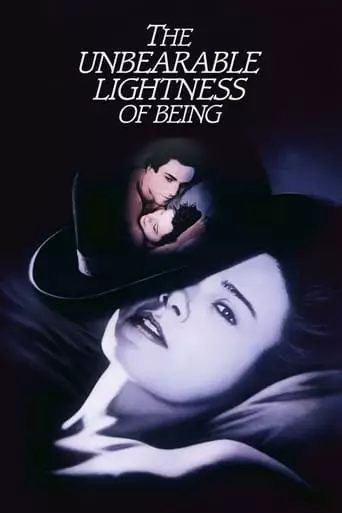
The Unbearable Lightness of Being (1988) Watch Online Free
Successful surgeon Tomas leaves Prague for an operation, meets a young photographer named Tereza, and brings her back with him. Tereza is surprised to learn that Tomas is already having an affair with the bohemian Sabina, but when the Soviet invasion occurs, all three flee to Switzerland. Sabina begins an affair, Tom continues womanizing, and Tereza, disgusted, returns to Czechoslovakia. Realizing his mistake, Tomas decides to chase after her.
Based on Milan Kundera’s celebrated novel, The Unbearable Lightness of Being (1988) is a deeply layered exploration of human relationships, freedom, and identity, set against the backdrop of the 1968 Prague Spring and subsequent Soviet invasion. The film masterfully balances its romantic and philosophical elements, capturing the complexities of love and individual choice.
Set in 1960s Czechoslovakia, the story follows Tomas (Daniel Day-Lewis), a charismatic and emotionally detached surgeon who avoids commitment and lives a hedonistic lifestyle. He has an intense relationship with Sabina (Lena Olin), a free-spirited artist who shares his aversion to attachment. However, Tomas’s life takes a turn when he falls for Tereza (Juliette Binoche), a shy and idealistic young woman who seeks deeper emotional connection.
As Tomas, Tereza, and Sabina navigate their intertwined relationships, the political turmoil of the Prague Spring invades their lives, leading to moral and emotional reckonings. The film examines themes of love, betrayal, and existential freedom, using the personal lives of its characters to mirror the greater societal shifts of the time.
Watching The Unbearable Lightness of Being is an emotionally and intellectually enriching experience. The film invites introspection about one’s own relationships, values, and the balance between freedom and responsibility. You may feel a mix of emotions—melancholy for the characters’ struggles, admiration for their resilience, and contemplation about the fragility of life and love. The haunting beauty of the film stays with you, urging reflection on the “lightness” and “weight” of your own existence.
If you enjoy films that blend historical drama with deep character studies and philosophical exploration, this film will likely leave you both moved and thoughtful.
